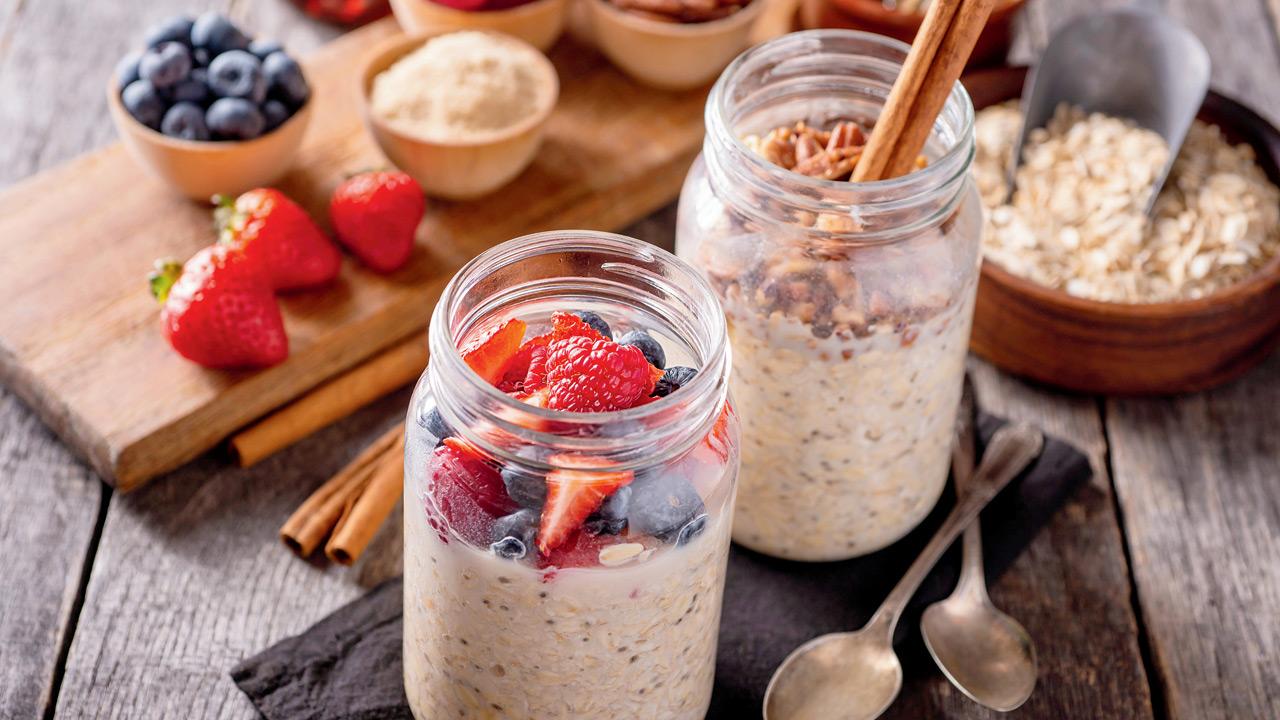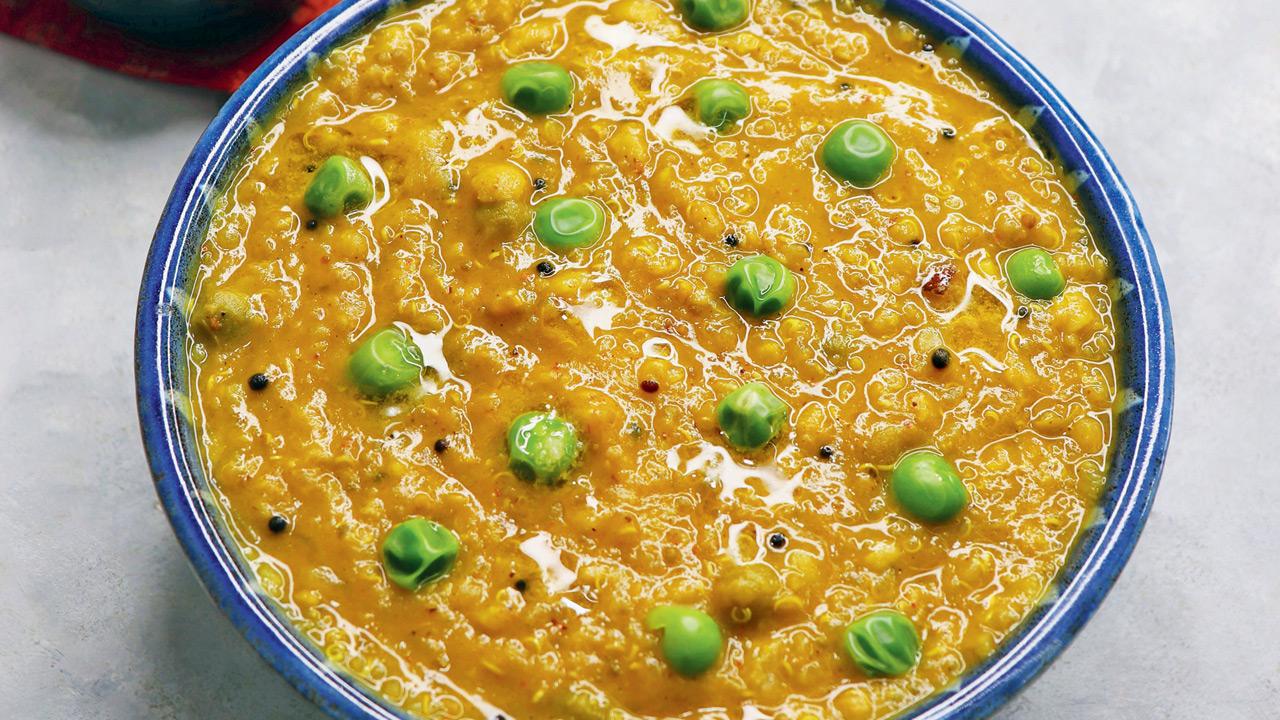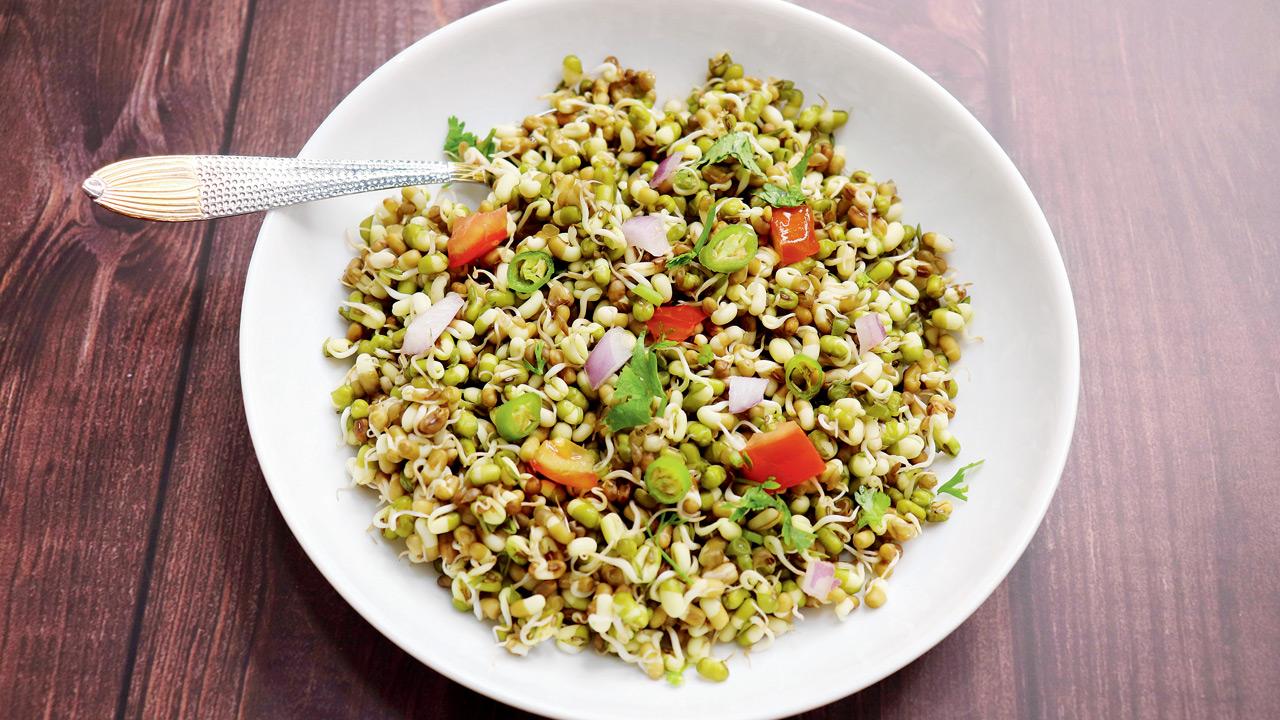On International No Diet Day, we speak to city-based nutritionists to help us unlearn harmful food habits and adopt healthy eating patterns without going on diets

While diets might be helpful, it is equally important to understand one’s unique dietary needs, engage in mindful eating and adopt a healthy lifestyle to stay fit and active. Representation pics/istock
From ketogenic and low-carbohydrate diets to intermittent fasting and detox recipes, the variety of dietary routines and fads that have flooded our feeds and shelves in the past decade has been huge. While these regimes might work for a good chunk of people, the widespread popularity and misinformation surrounding these dietary plans can often push you to the wrong path. Moreover, the idea of a healthy lifestyle isn’t strictly related to diets either. It can be as simple as knowing what works best for your body.

(From left) Nicole Linhares Kedia and Karishmma Chawla
“When it comes to adopting a healthy lifestyle, there are different categories of people with different eating patterns. We call this the concept of bio-individuality, where one person’s food can be another person’s poison. This simply means that while nutritional requirements vary from person to person, you need to know what aligns with your body and gut and you can make magic out of what you eat,” Karishmma Chawla, functional medicine nutritionist and lifestyle educator explains.
In a city as professionally-driven as Mumbai, we have identified four sets of people from its working population, the repercussions of the lifestyle they are bound to follow and what they can do to lead a healthy life without having to stick to diets.
Different routines, correct eating
1. Corporate professionals
Concerns: Working in high stress, time-bound work environments

Start your day with healthy alternatives like overnight oats
Corporate professionals might have to deal with stress and tight deadlines all the time, but healthy, thoughtful choices can be beneficial both mentally and physically. Chawla suggests, “Start the day with a protein-rich smoothie or a quick meal like eggs on toast or overnight oats. Cooking in bulk over the weekend can help you avoid last-minute unhealthy choices.”

Keep yourself hydrated
Nicole Linhares Kedia, sports nutritionist and integrated health coach shares, “Corporate professionals tend to indulge in excessive caffeine intake throughout the day which can elevate cortisol levels. This can contribute to chronic inflammation over time. Staying hydrated and limiting sugar, alcohol and heavily processed foods can make a big difference. It is also important to be mindful of your meal time. Eating heavy meals close to bedtime can interfere with digestion, blood sugar levels and sleep. Finish your last meal three to four hours before going to bed to allow your body time to properly digest.”
2. Shift-bound professions
Concerns: Late night hours, irregular eating and sleep patterns
For a city that never sleeps, it is necessary for lifestyle choices to also mould themselves to the late work hours. Kedia lays out the environmental triggers that can also affect your digestion. “Prolonged exposure to pollution or excessive Ultraviolet (UV) radiation can activate inflammatory pathways in the body. Minimising exposure and using protective measures when possible can help keep these in check.”

Quinoa khichdi
Chawla observes, “Late-night workers often face irregular meals and rely on sugary, processed snacks that can disrupt gut health. These foods feed on harmful gut bacteria, leading to poor digestion, and low immunity. Instead, choose slow-digesting foods like oats, millets, or quinoa with protein like eggs or paneer. Swap chips and biscuits for roasted nuts, seeds, or boiled eggs. Consume lemon water, buttermilk, or herbal teas. Eating small, balanced meals throughout the shift keeps your gut steady even during odd hours.”
3. College students
Concerns: Juggling academic pressure, proximity to junk food

Avoid processed, carb-high dishes
Given the cheap and easy availability of fast food joints near educational institutions, students are prone to indulging in quickly made, high-processed food which can result in inflammation.

A simple meal of dal rice is nutritious and easy to make
“Fresh fruits, leafy greens, tomatoes, and whole grains are inflammation-fighting powerhouses. Rich in polyphenols and antioxidants like lycopene and beta-carotene, these foods help the body combat oxidative stress. For those evening cravings, you can pack nuts and seeds like flax seeds and walnuts for a nourishing and filling snack,” Kedia reveals while Chawla adds, “You don’t need fancy ingredients to eat well. A one-bowl meal of rice, dal, vegetables, and curd is balanced, affordable, and easy to make.”
4. Sedentary workforce
Concerns: Zero-activity lifestyles, round-the-clock jobs

Add sprouts in your meals
A good portion of the city’s working population is stuck in front of desktops leaving very limited time for body movement, which also impacts your digestive system as the experts tell us. “Long hours of sitting and irregular eating patterns can disrupt gut function, slowing digestion and encouraging gas, bloating, and fatigue. Constant snacking on tea, sugary drinks, or processed foods feeds harmful gut bacteria and throws off your digestive rhythm. To support gut health, opt for simple high-protein meals like sprouts, boiled eggs, paneer, or vegetable sandwiches made with whole grains. These provide fibre and nutrients that promote good bacteria. Swapping white rice or bread for brown rice or multigrain options improves digestion. Even short walks between long sitting hours can stimulate gut motility, and cutting down sugar in your tea or switching to herbal options can reduce gut inflammation and acidity,” Chawla summarises.
Smart way to eat

Engage in physical activity
Dos
>> Opt for seasonal ingredients like carrots, tomatoes, lychees and iced apples
>> Take the effort to do a brisk walk or some kind of bodily movement
>> If you are someone who orders in, choose grilled or sautéed dishes over heavy, greasy ones
Don’ts
>> Don’t go to bed immediately after meals
>> Limit heavily processed foods like sauces, MSG, or flavour enhancers
>> Try not to eat too quickly or while you are stressed as that can disrupt gut function
Information courtesy: Karishmma Chawla and Nicole Linhares Kedia
 Subscribe today by clicking the link and stay updated with the latest news!" Click here!
Subscribe today by clicking the link and stay updated with the latest news!" Click here!








